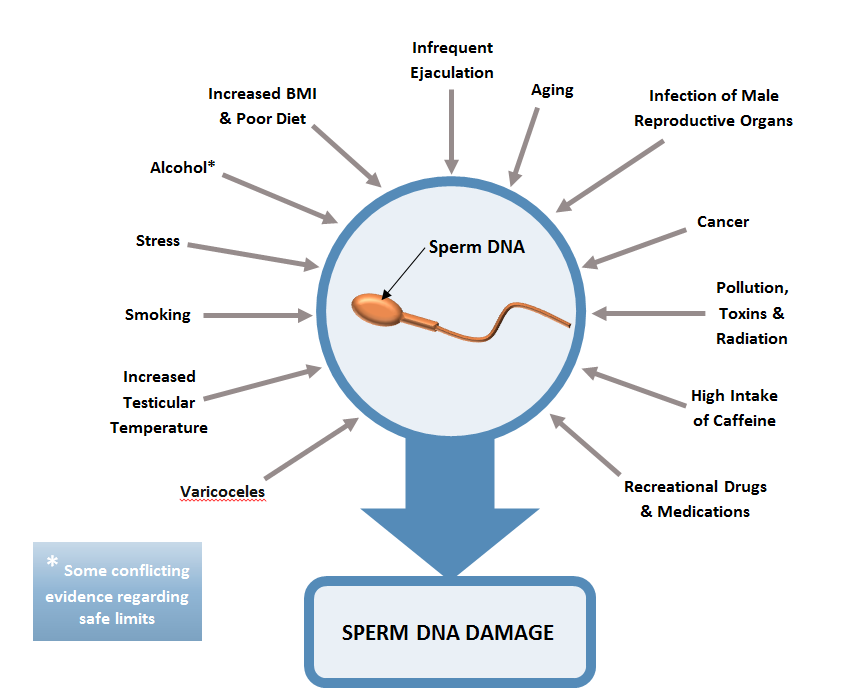Sperm Morphology and DNA
Sperm Morphology
Please reference the image below regarding sperm morphology:

S/A Parameters and Treatments
The chance of couples conceiving naturally is 15-20% per month however, with insemination that chance can increase by 5-15%. When the total motile sperm count is less than 10 million, IVF with ICSI is more cost-effective than IUI*. Less than 10 M/ml, the per cycle pregnancy rate with IUI is 2.5% and with less than 5 M/ml, the per cycle rate is 1%.
**VanVoorhis, BJ, Fertil Steril 2001 Apr; 75(4). **Dickey RP fertil Steril 1999 Apr:71(4)
Sperm DNA Integrity
DNA Fragmentation:
Sperm chromatin consists of DNA and proteins. The sperm DNA is tightly compacted in the head of the sperm, like a coiled telephone wire (reference image below). The DNA has to “uncoil” in order to begin the process of fertilization however, when it “uncoils” it can get tangled on itself. Furthermore, sperm DNA damage can occur for several reasons:
- Defective chromatin condensation during spermiogenesis
- Initiation of apoptosis during spermatogenesis or transport
- Oxidative stress

Effect of Free Radicals on Sperm

DNA Fragmentation
DNA Fragmentation tests assess whether the DNA is “packaged properly” not if it is damaged in terms of mutations or genetic issues. If a male has a DNA fragmentation at a higher percentage than normal (above 30%) the chances of achieving a pregnancy naturally or through IUI are diminished (but not zero). Note: we are not sure that DNA fragmentation affects IVF with ICSI (literature is mixed)*. We are also not sure if the proactive nature of OCSI is enough to overcome the fragmentation issue. This might be indicated if during IVF cycle, eggs looked good but poor fertility or embryo development or in cases of RPL.
Retrieved from a Conversation with Dr Natan
Sperm DNA Fragmentation Testing: Conclusion ASRM/AUA 2020
Since there are no prospective studies that have directly evaluated the impact of DNA fragmentation testing on clinical management of infertile couples (fertility outcomes of those who had testing are not different than those who have not) this test is NOT routinely performed in the initial evaluation of the infertile male.
There may be an increased risk of miscarriage for couples in which the male has abnormal DNA fragmentation, so testing for sperm DNA fragmentation indicated couples with RPL.
